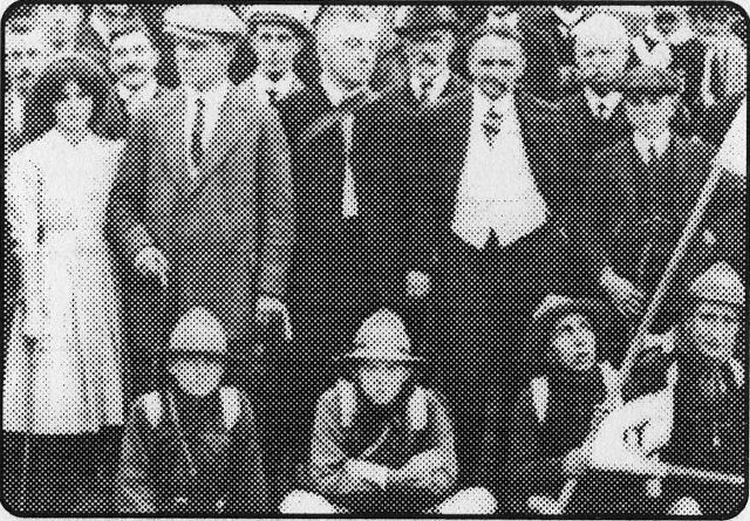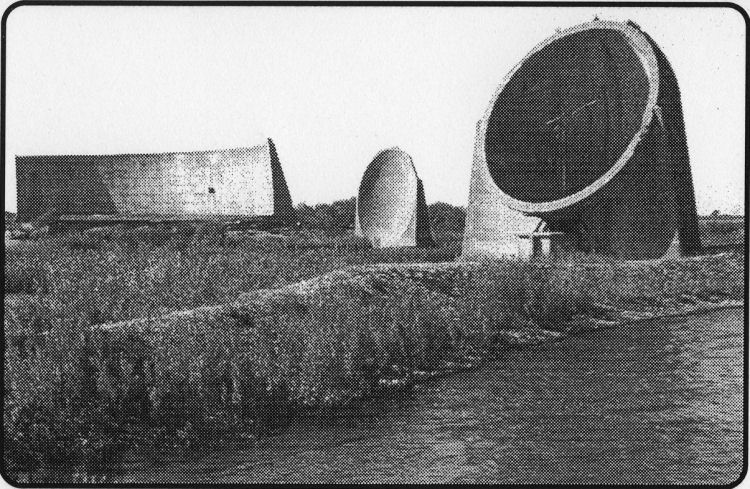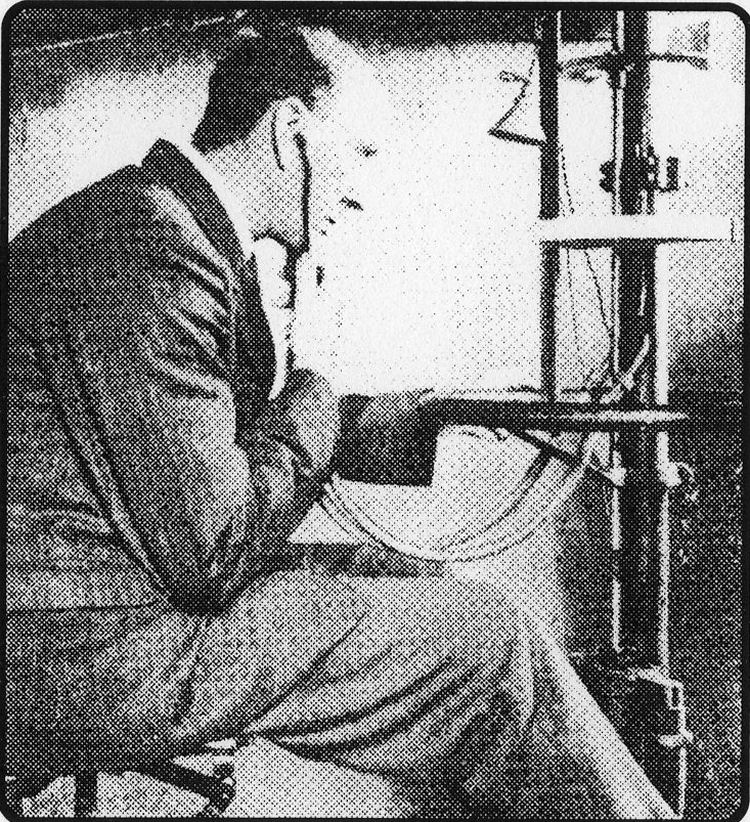Page Updated:- Sunday, 07 March, 2021. |
||||||||||
 From the Folkestone Herald Published 30 December 1999 ‘I knew Scouts’. PUBLICATION of an old Hythe picture postcard picture in Memories, in the Folkestone Herald, some months ago brought memories flooding back for a 90 year old former resident living in Holland. Herald reader wrote to me with the names of three boy scouts sat in the front of the picture. 
‘BEATING the Bounds,’ a symbolic checking of the parish boundaries, at Hythe, in 1910, with the boy Scouts named by Jack Martin.
Mrs Joan Cobbett, of Park Road, Hythe told me she sends snippets from the local paper to an old friend now living in Holland. He likes to keep in touch with what is going on in his old haunts. Her correspondent, Jack Martin 90, who was born in Hythe, wrote back to say he recognised the boys as Ginger Robinson, Bert Dunkin and Cecil Capon. Edwin Lilley, of Seabrook, lent me the postcard and I queried in the Memories article whether anyone could name the only woman in the Beating the Bounds group, and another Memories reader did. Miss Pamela Ellis, of Sene Valley Golf Course, told me it was Miss Enid Snowden and the first scout she remembered was called Robinson, who later worked at Maltby Motors’ garage. Well Jack Martin says he doesn’t remember Miss Snowden or her father but he recalled that Ginger Robinson later worked for Maltby’s and also at the Swan Garage. Mrs Cobbett tells me the garage was later the site of Somerfields. Ginger worked there under Mr Dunkin until he went away to fight in the 1939 war. His father, she says, was killed by enemy action whilst painting the Nelson's Head public house for the brewery. A bomb fell near the garage demolishing several little shops on the corner of Bank Street. The garage was also affected, several people being injured, and one man, Mr Wiles, lost a leg, while local GP Dr Mandy was also hurt. Mr Martin recalls that Robinson’s father ran the Gate Inn, in Dymchurch Road and writes: “Robinson and Dunkin played cricket with us for Hythe Green. Regarding the Gate Inn I recall a verse on the sign which began with the words ‘This gate hangs high and hinders none .....’ On a seasonal note the Herald files tell us that 90 years ago you I featured the picture of Beating the Bounds at Hythe in 1910 in which some members of the local Boy Scouts company took part and a few weeks ago a could go out and buy your wife a fur coat for about £3.50 and she could buy her husband a bottle of the best whisky for just under 20p - or even cheaper if buying one to six dozen bottles! In those days Christmas entertainment would have included roller skating at The Palace, at Grace Hill and an occasional dance, there was a show at the Pleasure Gardens Theatre, a concert at the Fernley Hall, Victoria Grove, and a special attraction at the Town Hall was Jury's Picture Show. Always a remarkable sight on the food front at Christmas were the massive displays of every imaginable meat at the local butchers who vied with each other for sales with their animal carcases hung outside their shops. And 90% was British! - Today the outside displays wouldn't be permitted on health grounds. A recent edition of the popular local history monthly Bygone Kent features a most interesting illustrated account of the curious concrete Sound Mirrors built around the coast to provide some warning of hostile aircraft approaching our shores - the first being used In the First World War. 
SOUND mirrors: The wartime 20ft, 30ft and 200ft aircraft detection mirrors at Dungeness, as they appeared in 1994 when Richard Scarth wrote a booklet, Mirrors by the Sea published by Hythe Civic Society to mark its 50th Anniversary five years ago. Now another writer has written about them.

MIRROR man: A 'listener' in the control room below the 30ft bowl mirror at Lade, or Denge, at Dungeness.
Dover author David Burridge writes in particular about the mirrors at Lade, or Greatstone, and reveals they may have been briefly reactivated during the Second World War when it was feared means of jamming our radar might have been developed by the enemy.
Dolls hospital? On an entirely different topic, Rhodes Minnis reader of Memories, Mr L. Gibbons, who is compiling a family tree, contacted me because he is wondering if any reader remembers a ‘dolls hospital' in the town. He tells me his wife recalls it was behind the Pleasure Gardens theatre as late as 1949 or so. Meanwhile, says Mr Gibbons, who lives at Woodford Lodge, Rhodes Minnis, a new-found relative in Brighton has told him of a family of Lewis “operating around the old Pleasure Gardens Theatre area in the 1900-20 era.”
Racquet hospital. And, as it happens, Mr Gibbons’ great-grandfather John James Lewis ran the Turkish Baths in Ingles Road, while Thomas Lewis - who, he believes, was his son - ran the ‘Racquet Hospital’ for the tennis courts behind the pleasure gardens. This is confirmed by Kelly's street directories of the time.” (A hospital in this sense, I believe, means a repair shop.) Mr Gibbons goes on to say his Brighton contact tells him a daughter of one of these Lewis men married a Folkestone builder of that time named Jenner. Can any Memories reader help?
|
||||||||||
|
If anyone should have any a better picture than any on this page, or think I should add one they have, please email me at the following address:-
|
||||||||||
| LAST PAGE |
|
MENU PAGE |
|
NEXT PAGE | ||||||
